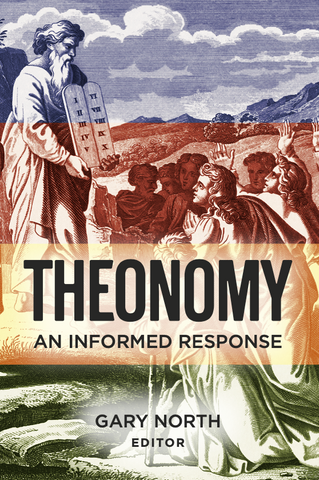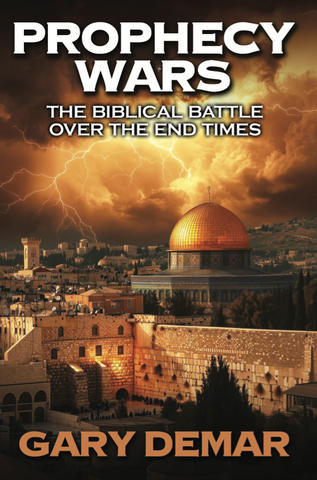P. Andrew Sandlin posted the following on Facebook: “Greg Bahnsen’s name has been invoked in the defense of the hyper-preterist heresy.” He doesn’t say who. For those of you who do not know, Greg Bahnsen was a professor at Reformed Theological Seminary in the 1970s when I was a student there. He taught apologetics, ethics, and a course on eschatology. His article “The Prima Facie Acceptability of Postmillennialism,” which appeared in the Millennium issue of The Journal of Christian Reconstruction (1976-1977), is a classic. American Vision publishes many of his books. As a result of Dr. Bahnsen’s work on God’s law, especially his book Theonomy in Christian Ethics (1973), a great debate took place on campus that was not favorable toward him. You can read about it here.
In a recent podcast, I pointed out that Greg’s views on God’s law were labeled “heretical” by some. I read from his “What Really Happened at RTS?” (1977). The entire situation was a mess. There was a closed-door meeting where Greg was not permitted to record it. He had to seek permission to come on campus.
Let me be clear. Greg would not in any way support “the hyper-preterist heresy” or even milder forms of full preterism (Sandlin loves to “hyper” everything since he’s not even a partial preterist, something that Bahnsen was). My point in the podcast was that throwing the “heresy” word around became a quick but inadequate debate technique to avoid debate. I can’t count the number of times I heard people say, “Well, you know, theonomy is heresy.” End of story. End of debate. I suspect that most people reading this article do not remember the Christianity Today article “Democracy as Heresy” by Rodney Clapp. (Christianity Today [Feb. 20, 1987], 17-23). It wasn’t only Theonomy that was suspicious of being heretical; it was Christian Reconstruction. (Gary North loved the caricature of himself that appeared in the CT article.) This was more than ten years after theonomy became an issue at RTS. It’s important to note that RTS knew Greg’s view on theonomy when they hired him.
John Hannah, a professor at Dallas Theological Seminary, offered to write an article on Christian Reconstructionism for CT. He sent a copy to one of his former students. Gary North said it was a “fair-minded summary of the basic theology of Reconstructionism.”
A few weeks later, CT rejected it. The editor told Hannah that they had hoped for an essay that went into the details about the Reconstructionists’ in-fighting. Dr. Hannah, a scholar, refused to rewrite it. Three years later, they assigned the job to Rodney Clapp. Gary North, always ready with a jab, wrote, “Just for the record, the executive editor’s name is Muck. You probably won’t believe me, but that really is his name: Terry C. Muck. Muck and Clapp—a Reconstructionist’s dream come true.” The faculty at Westminster Seminary responded to the kerfuffle with Theonomy: A Reformed Response. Gary North responded with Theonomy: An Informed Response.

Theonomy: An Informed Response
Christendom is a civilization—the kingdom of God in history—that is governed in every area, every nook and cranny, by God: a society whose lawfully anointed rulers govern in terms of God’s revealed law. In this view, God is not in retirement or on vacation; He is a King who has delegated to His officers the authority to exercise command. There are three covenantal institutions: family, church, and state. To deny that God’s covenant law applies to civil government in New Testament times is necessarily to abandon the ideal of Christendom.
Buy NowBy the way, Gary North did not endorse Full Preterism, even after David Chilton reportedly declared himself a Full Preterist in 1997. This never stopped North from selling David’s The Days of Vengeance, Paradise Restored, and The Great Tribulation, books that have led some to full preterism. American Vision publishes all three of them. The Full Preterism in 1997 is a different breed from what it is today in its numerous incarnations.
Sandlin pulls the Bahnsen card, the Calvin card, and the Rushdoony card, but rarely plays the biblical exegesis card. All he has to say, “Bahnsen said,” or “Calvin said,” or “Rushdoony said it,” and the debate is over. Bahnsen would not support full preterism, but he was a partial preterist, something Sandlin is not. He stated the following in 2002: “I’m not a preterist (partial or total). Neither was Rushdoony.” Calvin was something of a preterist, especially on Daniel. Rushdoony was more of a historicist, but there were preterist elements to his eschatology. See my article, “Does ‘Postmillennialism’ Require Preterism?” In 1971, Rushdoony wrote the Introduction to Marcellus Kik’s An Eschatology of Victory that includes a reprint of his 1948 preterist book Matthew 24. Ken Gentry does something similar in playing the name game by following Bahnsen’s interpretation of Luke 17. See my critique of their interpretation in my book Prophecy Wars.

Prophecy Wars: The Biblical Battle Over the End Times
There is a long history of skeptics turning to Bible prophecy to claim that Jesus was wrong about the timing of His coming at “the end of the age” (Matt. 24:3) and the signs associated with it. If you’re willing to take the Bible at its word, the study of prophecy can strengthen your faith, but if your trust is in man’s speculations, you will be disappointed every time.
Buy NowThis commotion with Sandlin is related to my dialogue/debate with Doug Wilson on November 3, 2025, in Moscow, Idaho. Sandlin believes it is wrong to hold a public discussion of preterism. I can understand his aversion. It was the same aversion that Tim LaHaye had and would not debate with me. He did not want to expose people to an anti-dispensational hermeneutic that he thought was heretical.
There was a time when Douglas Wilson and some of his friends were declared to be heretics … in 2002, 2006, 2007, 2008, and 2009 by churches. I found this: “He is an evil heretic. If you are in his cult, get out.” Doug hears this often. In the Foreword to his book Reformed is Not Enough, he explains that the RPCUS had deemed him a heretic. Most of this is old news. Also see John M. Otis, Danger in the Camp: An Analysis and Refutation of the Heresies of the Federal Vision.
It’s not my purpose to disparage Doug, but only to point out that throwing around the heresy label is convenient. If some people are labeled heretics, you don’t need to listen to them, and you should never engage them in a discussion or debate. Case closed. End of discussion. Nothing to see here. Just move on.
The debate over eschatology is not going away. My emails, phone calls, and face-to-face discussions with Christians and pastors tell me this is the case. Sandlin has only brought more attention to it. Hopefully, some good will come out of it.

